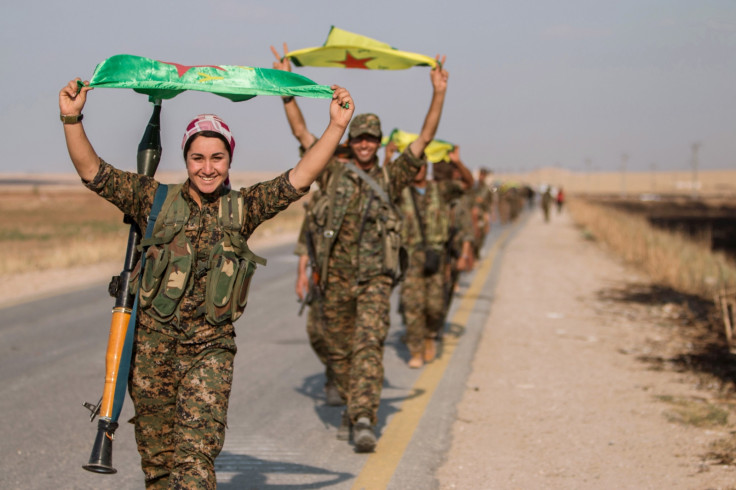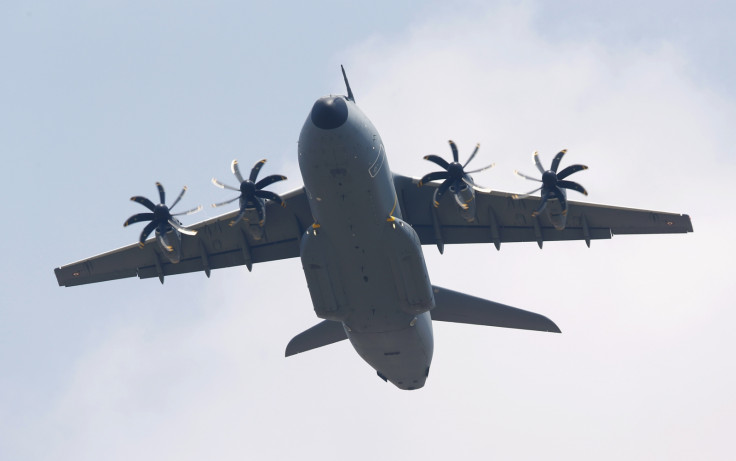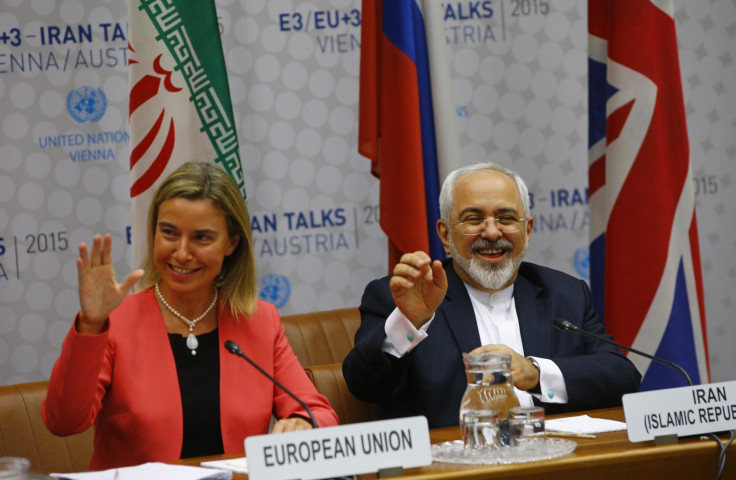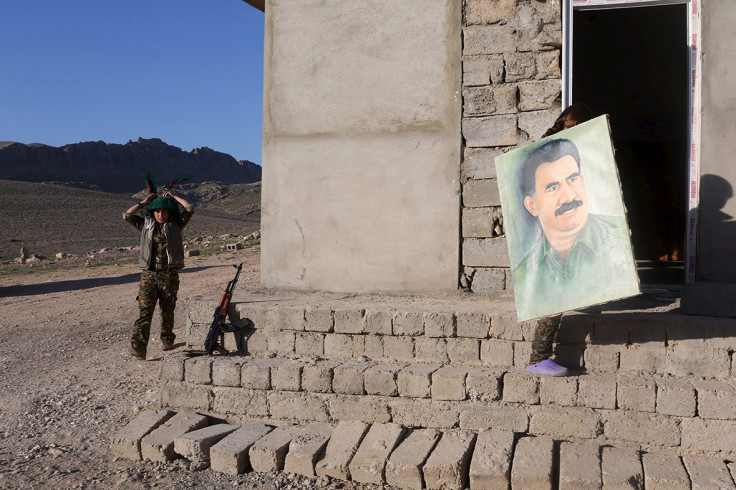Syria: US-Turkey safe zone deal could mark the end of Assad and Isis but alienate Kurdish YPG

The Kurdish YPG militia has scored a strategic victory against Islamic State (Isis) by capturing the northern Syrian city of Sarrin with the support of US-led coalition airstrikes after a month-long battle.
Situated near the Euphrates River, the town has been a key launchpad for IS to wage lethal raids on the border town of Kobani, which has been besieged for months before the Kurdish forces wrestled it back.
However, the aftermath of the military victory may prove to be a bitter taste for the Kurds who are doing the "dirty job" in Syria and are the only force on the ground gaining ground on the jihadists.
Hours before the announcement on Sarrin, several media outlets reported that Turkey and the United States agreed on establishing a de facto buffer zone and working together to drive IS out of a 60-mile-long area west of the Euphrates River.
Though plans failed short of Turkey's long-requested deal on a no-fly zone, the area could boost Turkish and American military action against IS in Syria and provide a much-needed humanitarian safe haven for displaced Syrians.
A US official told the New York Times that while details are yet to be determined, "Turkey is cooperating to support partners on the ground in northern Syria who are countering ISIL".
He said: "The goal is to establish an ISIL-free zone and ensure greater security and stability along Turkey's border with Syria."
A game changer

It is not clear which Syrian opposition forces will be responsible to enforce the protected area but experts suggest that al-Qaeda-linked al-Nusra front and Jaysh al-Islam, another Islamist group that rejected affiliation with Western-backed Free Syrian Army (FSA), will likely conduct anti-IS operations in the area with the key support of Turkish airstrikes.
This means that under the new deal, the US will effectively turn a blind a eye to Syrian opposition groups that are aligned with radical Islamist ideologies as long as they keep fighting against IS. Turkish AK Party politicians seem to have outwitted their critics by granting a deal with the Obama administration, which long opposed setting up Syrian safe zones.
"It's a major concession on behalf of the US, but also a necessary trade off to secure Turkish support against IS," Ege Seckin, analyst at IHS, told IBTimes UK. "The buffer zone is a game changer not only in the fight against IS but also against Assad, which is Turkey's main target in Syria."
Both Turkey and Syrian opposition groups see ousting president Bashar al-Assad as their top priority and this is why Ankara has been reluctant in joining the coalition against IS.
But the recent Iranian nuclear deal between Tehran and West, which will pave the way for an ease in financial and economic sanctions and inject the Islamic Republic a cash bonanza of $100bn (£64bn) in frozen assets, turned the cards on the table along sectarian lines.
Ousting Assad

Assad and his Alawite sect, an offshoot of Shi'ite Islam, are the main regional allies of the Iranian regime, and will probably benefit from cash flow deriving from the lift on sanctions. That threatens the regional interests of Sunni Turkey, which backs local opposition groups battling Assad.
"Turkey spotted a sense of urgency to get rid of Assad before it's too late," Seckin said. "The Iranians will soon have more financial resources to fund Assad."
American officials have already sought to play down the deal saying the plan is not directed against Assad and stressing that the safe zone do not include a formal no-fly zone. However, it is hard not to see how Turkey will be awarded from the agreement, which will eventually curb Syrian government air strikes on Sunni opposition fighters and allow thousands of refugees in Turkey to go back home.
Turkey spotted a sense of urgency to get rid of Assad before it's too late. The Iranians will soon have more financial resources to fund Assad
First reports of the deal came earlier in July, after Turkey allowed US aircraft to fly out from Incirlik military base to mount aerial bombings against the extremist group, something Washington has been asking for months with no success.
Turkey launched two rounds of attacks against IS in Syria with the aim of creating an "Isis free zone" and following days of increased tensions in the aftermath of a suicide bombing of 32 young Turkish socialists in the border town of Suruc.
Ankara jets also targeted sites used by the Kurdish separatist group the Kurdistan Workers' Party (PKK) after it claimed the killing of three Turkish policemen. Prime Minister Ahmet Davutoglu also announced the arrest of several members of the Marxist militant group, in a serious blow to the stalled peace process with the Kurds. The PKK announced the ending of a three-year ceasefire with the Turkish government.
Full-scale conflict

"We are assisting at the return of a full-scale conflict between the government and the PKK," Seckin said.
The separatist group has also interest to hold on to violence and maintain the status quo after the stunning electoral success of the HDP, a Kurdish-inspired movement that seized hearts and minds of the liberal youths in Turkey. "When you have strong political representation furthering your cause, living in the mountains becomes obsolete," the analyst said.
The new buffer zone and renewed support to Syrian Sunni groups will arguably be at the expenses of the YPG, a US-backed Kurdish militia that is the PKK counterpart in Syria.
The YPG, or People's Protection Units, have been the most effective force on the ground fighting IS and have eyed the same territory that is now included in the Turkish-American deal. The buffer zone will likely weaken the Kurdish fighters and embolden Sunni Islamist groups in the area.
Kurdish militants even claimed their positions came under fire from Turkish tanks deployed across the border at two different locations in northern Syria.
"IS will be suffering from the Turkish and US airstrikes but also indirectly benefit from the fact that Turkey is targeting the PKK, the flag holder along with the YPG of the fight against the jihadist group," Seckin said.
Nonetheless, the buffer zone – which in the US plans stretches east from Azaz to Jarablus on the Euphrates – will likely cut off IS from their key supply route from the Turkish border after it lost control of the important control border crossing of Tel Abyad to the YPG.
Seckin said: "It's a major setback not only in terms of routes for foreign fighters, but also for revenue forces from smuggling operations."
© Copyright IBTimes 2025. All rights reserved.




















